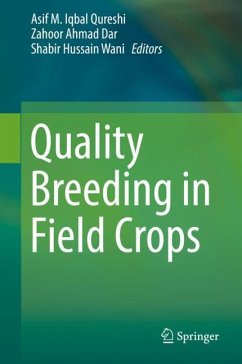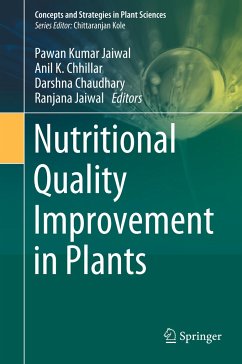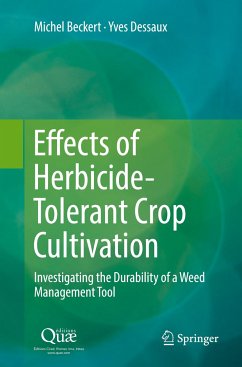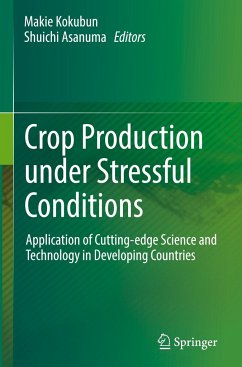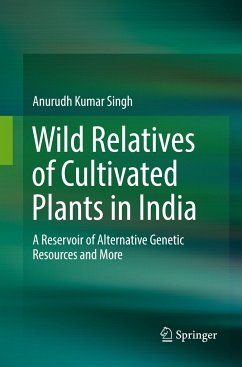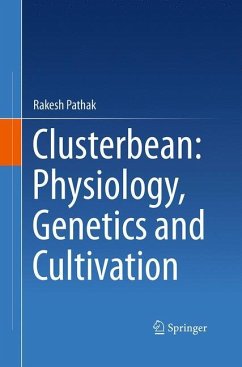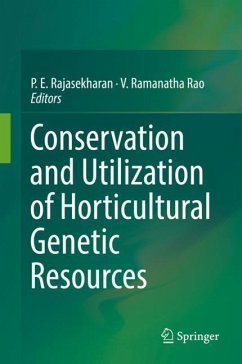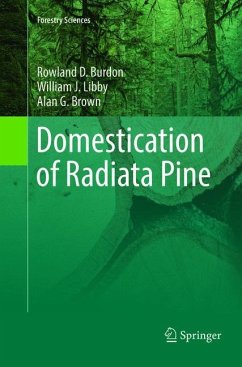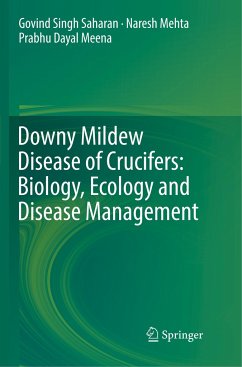Dr. Shabir Hussain Wani is a senior assistant professor at Mountain Research Centre for Field Crops, Sher-e-Kashmir University of Agricultural Sciences and Technology of Kashmir, J&K, India. He received his B.Sc. in agriculture from BhimRao Agricultural University Agra, India, and M.Sc. in genetics and plant breeding from Central Agricultural University, Manipur, India, and Ph.D. in plant breeding and genetics on "transgenic rice for abiotic stress tolerance" from the Punjab Agricultural University Ludhiana, India. After obtaining his Ph.D. he worked as research associate in the Biotechnology Laboratory, Central Institute of Temperate Horticulture (ICAR), Srinagar, India. He then joined the Krishi Vigyan Kendra (Farm Science Centre) as program coordinator at Senapati, Manipur, India. He teaches courses related to plant breeding, seed science and technology, and stress breeding and has published more than 100 papers/chapters in journals and books of international and national repute. He served as guest editor and reviews editor for journal Frontier in Plant Science (2015-2018). He has also edited several books on current topics in crop improvement for abiotic stress tolerance published by Springer Nature and CRC Press USA. His Ph.D. research won first prize in the North Zone Competition, at national level, in India. He was awarded a Young Scientist Award from the Society for Promotion of Plant Sciences, Jaipur, India, in 2009. He is a fellow of the Society for Plant Research, India. Recently, he received Young Scientist Award (Agriculture) 2015 from Society for Plant Research, Meerut, India. He also served as visiting Scientist at Department of Plant Soil and Microbial Sciences, Michigan State University, USA under the UGC Raman Post Doctoral Fellowship programme. He has attended several international and national conferences, presenting his research. Dr. Mukesh Jain is an Associate Professor in the School of Computational & Integrative Sciences, Jawaharlal Nehru University, New Delhi. He received his PhD degree in Plant Molecular Biology from the University of Delhi. He started his independent research career as Assistant Professor at the GGS Indraprastha University, New Delhi. Soon after, he joined as Staff Scientist at the National Institute of Plant Genome Research. Dr. Jain's main research interests include understanding the molecular mechanisms underlying abiotic stress responses and seed development in crop plants via integrated genomics and systems biology approaches. Dr. Jain has done outstanding work in the area of Plant Genomics and Biotechnology. Through the years, he has made significant and innovative contributions in the area of plant functional and applied genomics highly relevant to crop improvement. Dr. Jain has published more than 90 research papers/reviews in leading international journals with high impact factor. For his scientific contributions, Dr. Jain has been honored with several awards. He is a Fellow of National Academy of Sciences India, Allahabad and National Academy of Agricultural Sciences, New Delhi. He has been honored with National Bioscience Award, NASI-SCOPUS Young Scientist Award, Rajib Goyal Prize, Haryana Yuva Vigyan Ratan Award, Innovative Young Biotechnologist Award, and several young scientist awards from different national academies/agencies. Dr. Jain serves on the editorial board of many reputed international journals.





